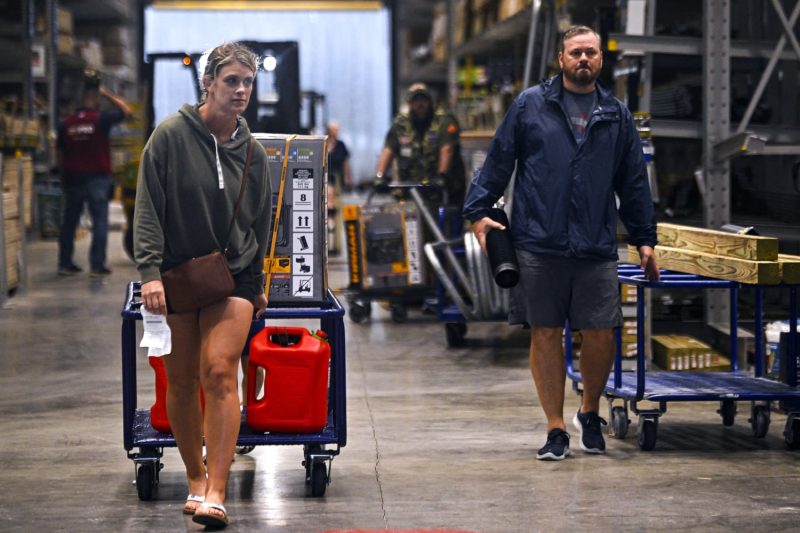As Mother Nature prepares to batter the southeastern coastline with Hurricane Milton, consumer protection agencies such as the Department of Justice (DOJ) and the Federal Trade Commission (FTC) have issued warnings concerning the potential for fraud and price gouging. Awareness and preparedness are crucial for the inhabitants of potentially affected areas to avoid falling victim to deceptive practices during such challenging times.
Higher prices are often a natural consequence of increased demand and reduced supply caused by natural disasters. However, there has been a rise in incidences of price gouging, a practice where businesses significantly increase the prices of goods, services, and commodities following a state of emergency or natural disaster. According to the DOJ and FTC, this unjust practice exploits those already suffering from the impacts of a destructive event like Hurricane Milton.
The FTC, enforcing consumer protections against unfair and deceptive business practices, has been vigilant about price gouging. The agency encourages consumers to report any exorbitant pricing of essential items such as food, water, fuel, and necessary supplies during an emergency period. The FTC reviews reported allegations meticulously and takes appropriate action against businesses proven to be exploiting disaster scenarios to rip off consumers.
Potentially more sinister is the risk of fraud – fraudulent contractors and fake charity scams are unfortunately common in the aftermath of a disaster like Hurricane Milton. Fraudsters tend to exploit the desperation and fear that arises, creating an opportunity for scams.
The DOJ warns consumers to be aware of fraudulent contractors offering repairs or cleanup services that they do not intend to perform or complete. In their cautionary release, they strongly urge residents to request verifiable identification, proof of qualifications, and references before hiring contractors. They also recommend consulting with insurance providers before carrying out any contracted repairs, to ensure coverage is in line with any damage claims.
Simultaneously, fake charities often spring up around disaster-stricken areas; impersonating as genuine humanitarian aid organizations to exploit the generosity of people wanting to help. The DOJ cautions consumers to meticulously research any charitable organizations before donating. Avoid any unsolicited requests for donations and focus on established charities with verifiable track records.
Both the DOJ and FTC want consumers to know that help is available in these trying times. Their websites provide valuable information on how to report fraud or price gouging, and they offer resources to help consumers recognize and prevent falling victim to these deceptive practices. By being proactive and maintaining a high level of vigilance, consumers can help mitigate these outlandish and unsavory practices, helping to keep communities secure during disaster situations like Hurricane Milton. By educating ourselves and our communities, we can build a bulwark against those that would take advantage of a natural catastrophe for financial gain.
Bear in mind that navigating the chaos that follows a disaster like Hurricane Milton can be fraught with unseen hazards. As local communities pull together to weather the storm and recover in its aftermath, agencies like the DOJ and FTC are endeavoring to protect them from invisible threats. Stay safe, stay vigilant, and together we can ensure a more informed, protected community amidst the turmoil.
